Days and weeks flying by, and just when I think I’m caught up, I realize I’m still behind the ever marching release calendar. This time around, in the ever challenging effort to keep up to date, I ran into some road blocks. One was the tragic passing of Andre Matos, which really derailed me for awhile. After a couple days where I couldn’t even bear the thought of listening to his voice because I was feeling pretty down about it to say the least, I took a few days to go on an Angra and Viper binge. That was therapeutic and insightful because I ended up reexamining the entire Angra catalog, even some of the later era Edu albums that I’d previously shrugged off. Anyway to business: Three releases are reviewed below, two from major bands that deserve a longer discourse than the one paragraph reviews I was dishing out on the last update —- and a band that’s new to me that has taken over my listening time in a major way. I’ve been gushing about them to anyone within earshot, and on the newest MSRcast as well, so its only fitting that I write a bit about it here. Also working on the premiere of a major feature I’m hopefully rolling out soon, and maybe some other non-reviews oriented fun stuff as well. Thanks for reading!
Darkthrone – Old Star:
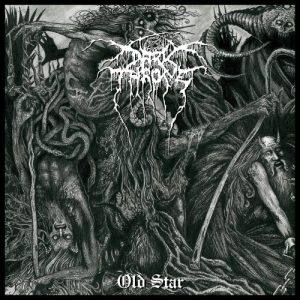
The legendary status of a band like Darkthrone is never in question. They’ve been around for ages, and almost any metal fan acquainted with more underground music or just black metal in general knows their name and maybe even an album or two. Sometimes though, I wonder if our justifiably warm, and dare I say fuzzy feelings towards Fenriz and Nocturno Culto as anti-spotlight, fellow working class metalheads colors our feelings towards their recent releases. Don’t get me wrong, I hold the band in high esteem, but sometimes they release albums that just feel like stuff I’ve heard before, that was more exciting the first time I heard it. I read other people pouring out opulent praise for their new album on Twitter and elsewhere and begin to wonder what I’m missing. Or have they transcended into that place in the underground metal pantheon where every new release is just automatically lavished with gushing adoration and critical plaudits? Ihsahn once remarked in an interview something to the effect of what he would hate about recording new Emperor albums, namely, that they’d be automatically granted a critical respect and stature just because of the storied history behind the name on the album art.
One day after Old Star was released, I saw a few folks on Twitter labeling it their favorite album of the year so far. Is that really the take we’re going with a day after its release? Seems a little hyperbolic and oh also have you not listened to anything else this year? The joke enjoyed at my expense before this album was released was mentioning to a friend of mine how it had been a long time since the last Darkthrone album, thinking it was 2013’s genuinely exciting The Underground Resistance, completely forgetting 2016’s well… forgettable Arctic Thunder and its half-hearted plunge back into icy, black metal-ish waters. The sad thing is that three years from now when Darkthrone releases their next album (I’m just assuming they will), I’ll likely still look back on The Underground Resistance as my most recent lodestone bearing the memories of what I can so joyfully love about this band. I don’t think Old Star is a bad album, but its riff first stance has these songs struggling to find any purchase in terms of memorability. Fenriz remarked in the album’s press release that it was the most 80s sounding record they’d ever done, and maybe to him it is because he’s associating it with specific riff influences that will go over most of our heads. I mention that because the seemingly scattered assortment and placement of differing riffs in aggression, attitude, and even stylistic approach seems utterly random and forced in songs like “I Muffle Your Inner Choir”. They certainly achieved what the title preaches —- can I get a vocal melody here guys, or a hook of any kind?
Don’t look at me like that. Yes I said vocal melody and hooks in a Darkthrone review. The band at their best in their recent decade long span has delivered both in spades —- songs like “Too Old, Too Cold”, “Circle The Wagons”, “I Am the Working Class”, “Valkyrie”, “Leave No Cross Unturned”… you get the idea. All songs with pronounced hooks, mostly in the vocal department via catchy phrasing. Here on the new album, vocal patterning seems to be hardly an afterthought, the riffs being the central music motif we’re supposed to latch onto. That’s near impossible for me on a dud like “Alp Man”, which is as boring a Darkthrone song as I can recall. I wasn’t thrilled with the title track either, which never seemed to materialize any sort of internal logic or direction. There’s a nagging question underpinning this album’s scant six songs —- why are all of these so freaking lengthy? The shortest was 4:28 but should’ve been half that, and the rest easily eclipse 5 and 6 minutes in length. There’s no musical reason for them to so do, no grand buildup to a major bridge in the middle of them, nor any kind of natural Blind Guardian-esque need to embellish and beautify (this is ugly old Darkthrone we’re talking about after all). The length alone made repeat listening to this album for review purposes a chore, and I hate writing that about a Darkthrone record (mostly because it should make no sense in the first place). At no point did I ever truly hate anything on the album, but only once did I perk up and think “oh that’s cool” (during the middle of the “Duke of Gloat” and its nifty little faster tempo bridge). I know I’m in the minority, and most will dismiss me (and that’s fine), but Darkthrone sounds a little aimless and drifting here.
Aephanemer – Prokopton:

I have no one but Spotify to thank for this brilliant recommendation. I was listening to the latest Gloryhammer on it, and after it was finished playing through this album popped up, the service’s algorithm coming through in a big way. I should add that Aephanemer really has nothing in common with Gloryhammer, except maybe a penchant for melody and memorability in their songs. Oh sure there’s a subtle power metal influence here ala Wintersun or Brymir, but Toulouse, France’s Aephanemer blend together a distinctly Swedish strain of melodic death metal with stirring, uplifting symphonic swirls. Sometimes when you try to describe a band in text, it just comes across like more of something you’ve already heard before (“Oh, so its like Wintersun?” *slaps forehead*). I think what separates Aephanemer from any of its peers working with similar stylistic fusions is this band’s heavy tilt towards Gothenburg melodic death, rather than the more melancholic Finnish variety. Its enough of a distinctive difference that it allows their other fusions with symphonic elements and wildly creative melodic detours to combine into something I don’t think I’ve quite heard before (and that alone is as surprising as how unique this album sounds). This is the French four piece’s sophomore album, and it is a far more engaging and sophisticated continuation of what they began on their solid 2016 debut full length Momento Mori. Its not that common for the artistic gap between a debut and a sophomore album to be this wide, but for Aephanemer, this feels like they’ve graduated ahead of schedule.
One of the things I’m appreciating about this band is just how integral every member’s contributions feel —- vocalist/rhythm guitarist Marion Bascoul is the natural centerpiece, her perfectly suited growling/screaming blend the right tone and color for the band’s music. She’s a bruising rhythm player too, her playing both appropriately full of sonic crunch and little dabs of thrashiness to prevent things from ever feeling anywhere near clinical. She’s accompanied by an astonishingly tight rhythm section in bassist Lucie Woaye Hune and drummer Mickaël Bonnevialle; the latter a vividly creative percussionist, spitting out fills and inventive patterns that are enjoyable in their own right, and Hune’s bass is an aggressive underbelly to Bascoul’s riffing, rumbling along audibly in the mix. Of course, the can’t miss element in all this is lead guitarist Martin Hamiche’s spectacularly energetic, fluid, and at times even gorgeous playing. His work across this album seems entirely natural and unrehearsed, even though I’m almost certain that every single note he’s playing was carefully crafted into place. His deft melodic phrasing is the glue that holds everything together and in a weird twist, he seems to weave in and around everyone else rather than simply lay atop their bed of sound as we’re so used to expecting from other bands. It should be pointed out that the mixing here was handled by none other than Dan Swanö, and he nailed a perfect balance for this album —- its one of the most crisp yet not clinical recordings you’ll likely hear, well ever.
The album begins with the title track and after a minute of pounding drum fueled introductory theatrics, we’re off into glorious melo-death territory. I’m enthralled by the way it sounds like the metallic attack here is being surrounded but never engulfed by the orchestral elements. Hamiche’s songwriting in this regard is superb, demonstrating that innate awareness of balance and layering. On the excellent “The Sovereign”, we’re treated to more of that precision balancing between the skyward shooting keyboard orchestral melodies, and the dizzying lead guitar work. We’re treated to a similar ear candy explosion on “Bloodline”, those gorgeous In Flames-ish harmonized guitars during the verses hitting the melo-death sweet spot in all of us and it seems like the orchestral melodies just keep escalating the pitch higher and higher. During the ecstatic mid-song bridge at the 2:57 mark, Hamiche’s self-professed classical influences radiate through like a ray of sun breaking through cloud cover. Its such a mighty, triumphant moment that I uttered awe inspired profanity when I first heard it sitting here at my desk however many weeks ago. I love the near panicky tempo and attack of the epic “If I Should Die”, which is just about the most perfect slice of Bodom meets In Flames inspired melo-death I’ve heard in ages. My favorite track right now (this is constantly shifting, it was “Dissonance Within” the other day) is “Back Again”, which is really this album summarized in an absolute stunner of a track, full of vicious riffs and darkened, melancholic laden melodies that tug on my heartstrings with every single listen. This is what I love about melodic death metal, that when perfectly executed, a single song can seemingly encapsulate so many boiling emotions. This is a must listen to album for 2019 (you can download it for free or pay what you want at their bandcamp —- no excuses!) and at this point, I have no doubt its going to be winding up on many year end lists, including mine.
Gloryhammer – Legends From Beyond The Galactic Terrorvortex:

I suspect that the cracks in my demeanor towards Gloryhammer surfaced during the review for Space 1992 when I admitted to liking “Universe on Fire”. Reading back on that review now, I notice two things: For starters I didn’t give enough credit to the actual quality of power metal that is present in Gloryhammer’s music in terms of songwriting and musicianship. Clearly, for everything to sound as good and often inspired as it does on Legends… you require musicians that are committed to delivering that, and that’s something that I don’t think can be faked. Christopher Bowes is a talented songwriter, and even though he’d never admit to any band or songwriter specific power metal influences (I suspect largely because it’d put a crimp in the image he portrays in interviews where he dismisses everything about metal as self-serious and lame), you have to at the very least appreciate power metal to emulate it as well as he does. And secondly, maybe I wasn’t being entirely honest with myself and everyone else reading about just how much it was bugging me that newcomers were latching onto Gloryhammer as their introduction to power metal. Here was this band arriving on the scene with a campy, mostly humorous, over the top space opera storyline with its band members even playing characters —- and they were getting attention from mainstream media in a way that power metal rarely has (ditto for their peers in the much lesser Twilight Force, who got a Vice feature… although maybe that’s not worth so much these days). It grated on me that these outsider media outlets were only willing to accept power metal when it openly poked fun at itself, and in essence were willfully or naively disregarding two decades plus of amazing music by incredible artists (those being the ones who had the nerve to take themselves seriously). Look, I’ll admit now that it was wrong of me to hold that grudge against these bands themselves, rather than simply at the mainstream/non-metal media in question. They were the ones deserving of scorn, and I got it wrong.
I’ve come to realize all this because over the past year plus I’ve been reading and participating in discussions about all things power metal with the fine people at r/PowerMetal (both the subreddit and the associated Discord), as well as digesting a great pod that everyone should check out called .powerful – a power metal podcast. I’ve gotten to filter my thoughts through them and come out the other end with a far more open minded perspective, one that accepts Gloryhammer as a potential gateway band for power metal in the same way Dragonforce possibly was (and Sabaton currently is). One of the discord members, LarryBiscuit went to see the band in Arizona on their recent tour with Aether Realm, and he noticed that most of the fans there were Gloryhammer fans, not metal fans per se. That’s something I noticed every time I saw Alestorm and even a band like Sabaton. A great deal of people showing up are primarily fans of those bands exclusively at that time, meaning they don’t care about the opener or know about them, nor are they metal fans of any stripe in general. I’ve spoken to people at Sabaton gigs who fit that description, and its something I’ve kept in my mind ever since —- and that’s rushed up to slap me in the face recently. I’ve always resisted writing anything snarky about bands like Five Finger Death Punch and the like because I view them as gateway bands to metal, that necessary component to keeping all forms of metal healthy with new potential fans cycling in. And what I’ve come to fully accept now is that maybe its a great thing that Gloryhammer is drawing in these folks, maybe geeky leaning people who could possibly wonder what else is out there that sounds somewhat similar to that band. One can only hope that some of them will venture down that road.
That Gloryhammer aren’t exactly breaking new ground should be obvious —- you already know what they sound like even if you haven’t heard a note. What’s worth mentioning here however is just how well crafted these songs are, and how impressive specific performances are on this recording. First off, vocalist Thomas Winkler just gets better and better, this being his command performance to date. He’s simply one of the premiere vocal talents in power metal worldwide right now, capable of a theatrical slant to his delivery that befits his character Angus McFife XIII, at times reminding me of a more full throated Mathias Blad and Tobias Sammet crossover. He knows how to inject just the right amount of variance from one iteration of a chorus to another to keep things interesting, and those choices are important to keeping things sonically interesting even though these are some excellent, vocalist-proof hooks he’s working with. I wouldn’t mind hearing him in another context, just to get an idea of just how expansive he could be given different material. Guitarist Paul Templing might be a little underrated given that he’s handling seemingly both rhythm and leads. He’s dexterous enough a player to deliver both tight, packed, even at times thrash-tinged riffing, while tossing out some ear candied licks as verse cappers and juxtaposing accents to Bowes keyboard melodies. There’s honestly not a bad song among the bunch here, but the killer track is “Gloryhammer”, as excellent a song as Bowes has ever written, well structured and paced, and suitably epic in spirit and joyful at once. I even think they nailed its CGI music video, which has to be a first for any power metal band. I also adore “Masters of the Galaxy”, because that’s a chorus that just refuses to quit… it indeed was stuck in my head for a week straight. And you know a power metal record is solid when its twelve minute plus closing epic, “The Fires Of Ancient Cosmic Destiny”, is one of the best songs on the album, galactic evil wizard narration and all. One of the most fun albums of the year —- I finally get it.

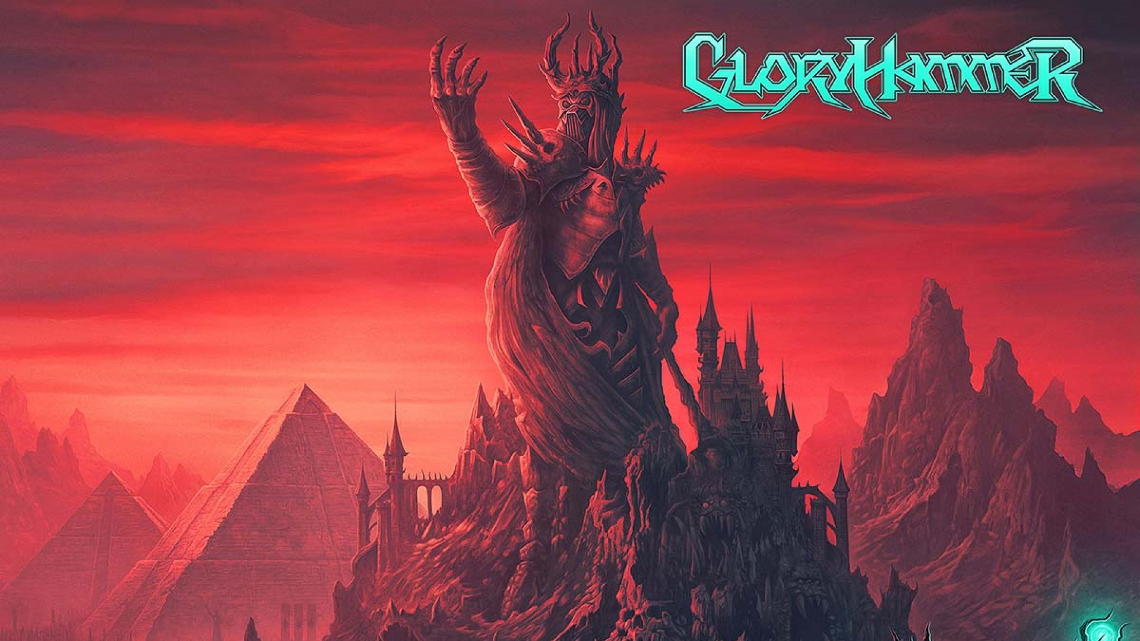
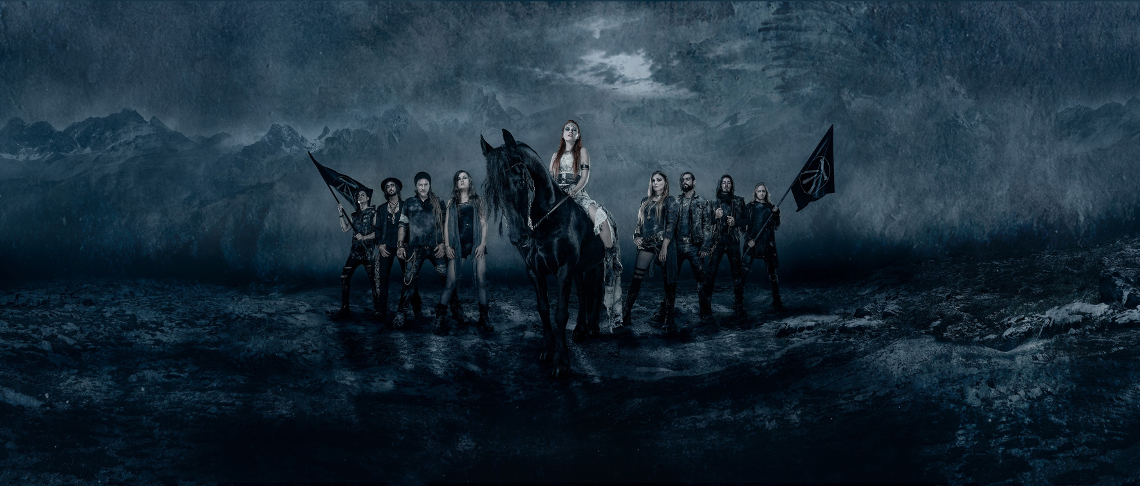

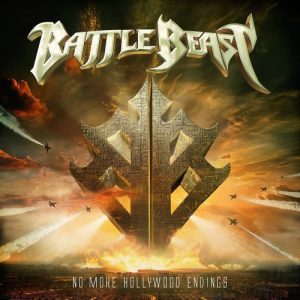


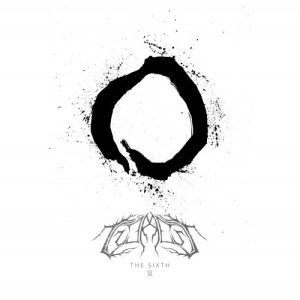


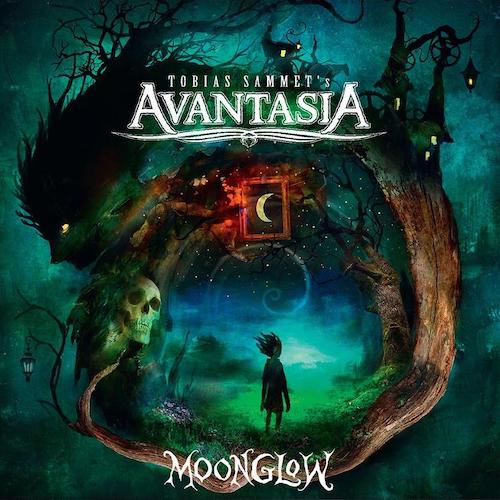


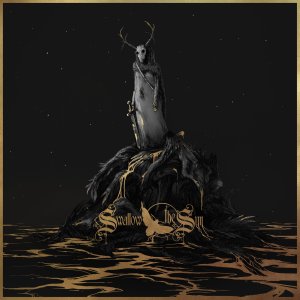


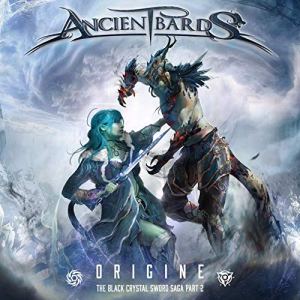
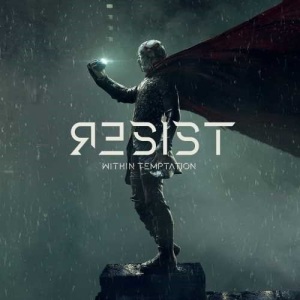




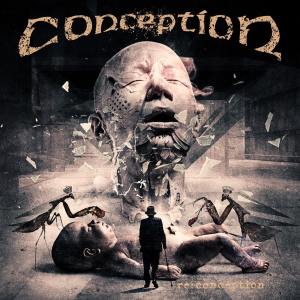
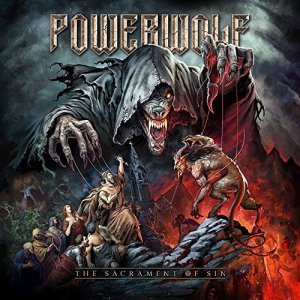 Powerwolf – The Sacrament of Sin:
Powerwolf – The Sacrament of Sin: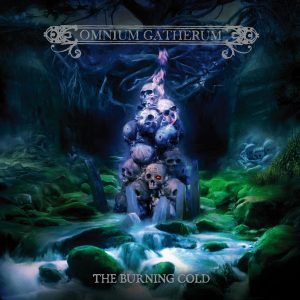 Omnium Gatherum – The Burning Cold:
Omnium Gatherum – The Burning Cold: Cauldron – New Gods:
Cauldron – New Gods: Beyond the Black – Heart of the Hurricane:
Beyond the Black – Heart of the Hurricane: We’ve had a few really solid months in terms of quality metal output, and I’ve been somewhat on top of most things this year which is a change from my usual flailing around. I’ve likely missed something somewhere but given the amount of time already spent listening to music, I don’t think I could cram anymore in. Here’s a few of the things I thought were noteworthy and worth talking briefly about, the ones that didn’t make it in this time might see the light of day next go round. If you really think I’m missing something that needs to be heard by all means let me know in the comments below, I need all the help I can get!
We’ve had a few really solid months in terms of quality metal output, and I’ve been somewhat on top of most things this year which is a change from my usual flailing around. I’ve likely missed something somewhere but given the amount of time already spent listening to music, I don’t think I could cram anymore in. Here’s a few of the things I thought were noteworthy and worth talking briefly about, the ones that didn’t make it in this time might see the light of day next go round. If you really think I’m missing something that needs to be heard by all means let me know in the comments below, I need all the help I can get! Judicator – The Last Emperor:
Judicator – The Last Emperor: Barren Earth – A Complex of Cages:
Barren Earth – A Complex of Cages:
 Nightwish – Decades:
Nightwish – Decades: Primordial – Exile Amongst The Ruins:
Primordial – Exile Amongst The Ruins: Oceans of Slumber – The Banished Heart:
Oceans of Slumber – The Banished Heart: But hey, Iced Earth is a trad/power metal band, and Houston and Texas in general is pretty solidly death metal country right? Something like this was perhaps bound to happen. In fact I remember the days when the very idea that a power metal band of any stripe would play in Houston seemed like a cruel joke —- indeed, the first major one to really entice us was Blind Guardian on their 2002 trek supporting A Night At the Opera, but sadly forces conspired to
But hey, Iced Earth is a trad/power metal band, and Houston and Texas in general is pretty solidly death metal country right? Something like this was perhaps bound to happen. In fact I remember the days when the very idea that a power metal band of any stripe would play in Houston seemed like a cruel joke —- indeed, the first major one to really entice us was Blind Guardian on their 2002 trek supporting A Night At the Opera, but sadly forces conspired to  It didn’t exactly work out that way. Oh we had some big shows through the years —- Dragonforce in 2006 at the Meridian drew almost as many as Iced Earth (pre – “Through the Fire and Flames” blowing up even), where somehow my friends and I wound up in the lounge backstage watching ZP Theart and Herman Li trying to lure all too witting women back to their tour bus (it was more amusing than impressive, like Motley Crue without the roadies to do their corralling for them). They had a nascent but buzz worthy Between the Buried and Me with them, who won over the crowd easily. Kamelot with Roy Khan would storm that same venue one year later with Leaves Eyes in tow (hot off the success of the Vinland Saga) and drew an eye raising amount of people for an unforgettable show, the band at the peak of their powers and riding high off the momentum of The Black Halo and Ghost Opera. Nightwish post-Tarja also landed a month later with Paradise Lost and sold the place out with a ton of fans arriving from Mexico for a chance to see the band in a small club setting. But largely speaking, power metal avoided Houston like the plague for most of that decade, the European bands often skipping North America altogether or having disappointing debut tours (Therion and Edguy come to mind immediately here).
It didn’t exactly work out that way. Oh we had some big shows through the years —- Dragonforce in 2006 at the Meridian drew almost as many as Iced Earth (pre – “Through the Fire and Flames” blowing up even), where somehow my friends and I wound up in the lounge backstage watching ZP Theart and Herman Li trying to lure all too witting women back to their tour bus (it was more amusing than impressive, like Motley Crue without the roadies to do their corralling for them). They had a nascent but buzz worthy Between the Buried and Me with them, who won over the crowd easily. Kamelot with Roy Khan would storm that same venue one year later with Leaves Eyes in tow (hot off the success of the Vinland Saga) and drew an eye raising amount of people for an unforgettable show, the band at the peak of their powers and riding high off the momentum of The Black Halo and Ghost Opera. Nightwish post-Tarja also landed a month later with Paradise Lost and sold the place out with a ton of fans arriving from Mexico for a chance to see the band in a small club setting. But largely speaking, power metal avoided Houston like the plague for most of that decade, the European bands often skipping North America altogether or having disappointing debut tours (Therion and Edguy come to mind immediately here). Sabaton ceased touring the States by themselves or with under powered touring partners, and in following up their 2014 trek supporting Iced Earth, they paired up with Nightwish a year later with Delain as support. It was three bands that would draw a fair amount of fans on their own pulling in a huge crowd together at a spacious downtown venue. When Sabaton returned a year later as a headliner, they brought along Delain and Battle Beast as support, and according my MSRcast co-host Cary it was so packed as to be downright uncomfortable, with no space to move among the biggest crowd that could possibly fit in the Scout Bar. They repeated the formula on last year’s tour as well, this time pairing up with Kreator for a co-headlining run with newcomers Cyhra as support —- the former coming off the success of sharing a headlining slot with Obituary and the latter drawing a few fans who were interested in what Jesper Stromblad was doing these days. I’m focusing a lot on Sabaton here for what I think should be an obvious reason: They’re the most successful power metal band in the United States since Dragonforce in the mid-aughts. Their success should be the model for other bands (particularly power metal bands) to follow when touring the United States, but clearly that isn’t happening. I’m at a loss as to why.
Sabaton ceased touring the States by themselves or with under powered touring partners, and in following up their 2014 trek supporting Iced Earth, they paired up with Nightwish a year later with Delain as support. It was three bands that would draw a fair amount of fans on their own pulling in a huge crowd together at a spacious downtown venue. When Sabaton returned a year later as a headliner, they brought along Delain and Battle Beast as support, and according my MSRcast co-host Cary it was so packed as to be downright uncomfortable, with no space to move among the biggest crowd that could possibly fit in the Scout Bar. They repeated the formula on last year’s tour as well, this time pairing up with Kreator for a co-headlining run with newcomers Cyhra as support —- the former coming off the success of sharing a headlining slot with Obituary and the latter drawing a few fans who were interested in what Jesper Stromblad was doing these days. I’m focusing a lot on Sabaton here for what I think should be an obvious reason: They’re the most successful power metal band in the United States since Dragonforce in the mid-aughts. Their success should be the model for other bands (particularly power metal bands) to follow when touring the United States, but clearly that isn’t happening. I’m at a loss as to why. Booking agencies are failing their clients, and bands need to start taking matters into their own hands via direct communication with their peers to make sure their tours are attractive enough to get fans out of their houses on a weeknight. I knew a few people who went to the Iced Earth show (MSRcast Cary was one of them), but I know a handful of friends who decided to pass on it, and when asked why they replied with a litany of reasons —- they’d already seen the band before, the lineup wasn’t exciting, and there were too many other shows coming up to pay for. When I asked them if they’d have showed up to an Iced Earth / Hammerfall billing, the answer was a definitive yes. What more market research do you need? I myself passed on the Iced Earth show, and I’ll be honest, I felt a little guilty about it at first. I consider myself a champion of power metal in the States, particularly in a place like Texas where its not exactly beloved, but its increasingly harder to do everything a good fan does. You want to support bands by buying the albums, buying tickets to shows and even buying a t-shirt or a hoodie, sometimes you can’t do all three so you pick one and try to make good. But there’s only so much of a paycheck that can’t be diverted from bills and groceries, and bands need to realize that and begin attempting to make it easier on their fan bases.
Booking agencies are failing their clients, and bands need to start taking matters into their own hands via direct communication with their peers to make sure their tours are attractive enough to get fans out of their houses on a weeknight. I knew a few people who went to the Iced Earth show (MSRcast Cary was one of them), but I know a handful of friends who decided to pass on it, and when asked why they replied with a litany of reasons —- they’d already seen the band before, the lineup wasn’t exciting, and there were too many other shows coming up to pay for. When I asked them if they’d have showed up to an Iced Earth / Hammerfall billing, the answer was a definitive yes. What more market research do you need? I myself passed on the Iced Earth show, and I’ll be honest, I felt a little guilty about it at first. I consider myself a champion of power metal in the States, particularly in a place like Texas where its not exactly beloved, but its increasingly harder to do everything a good fan does. You want to support bands by buying the albums, buying tickets to shows and even buying a t-shirt or a hoodie, sometimes you can’t do all three so you pick one and try to make good. But there’s only so much of a paycheck that can’t be diverted from bills and groceries, and bands need to realize that and begin attempting to make it easier on their fan bases. Lione / Conti – Lione / Conti:
Lione / Conti – Lione / Conti: Angra – ØMNI:
Angra – ØMNI: Tengger Cavalry – Cian Bi:
Tengger Cavalry – Cian Bi: Visions of Atlantis – The Deep & The Dark:
Visions of Atlantis – The Deep & The Dark: Visigoth – Conqueror’s Oath:
Visigoth – Conqueror’s Oath: